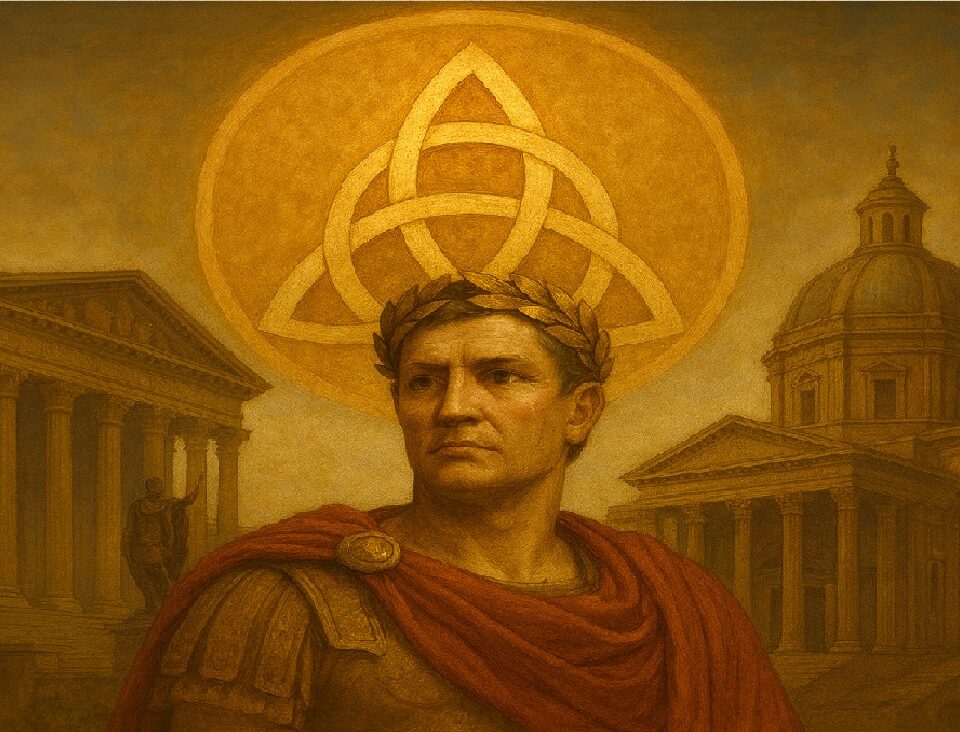
Jesus intercedes as the Spirit
February 25, 2022
Samaritan Woman John 4 Lessons
April 5, 2022Matt 28:19 is Neither a Trinitarian Formula nor a Corruption

Many non-trinis are under the impression that Matt 28:19 is a trini formula, therefore a corruption. But here are 3 reasons why the text is neither trinitarian formula or corrupted:
- MSS, patristic evidence
The first and probably most important is simply because every single scrap or copy of a Greek manuscript contains the verse as you have it in your Bible.
In fact, if you check any standard critical textbook you’ll find that there are no variants and/or grammatical errors of any kind in the verse.
If you think about it that is quite amazing considering the fact that scholars, to this day, continue to find so-called textual problems with many other verses.
Furthermore, the earliest Christian writers and extra-biblical documents cite the verse as we have it today.
These range from the earliest known Christian document outside of the NT, the Didache as early as 50AD, to around 15 patristic quotes starting in the early 2nd c. AD. including:
- Justin Martyr, First Apology (c. 155 A.D.)
- Tertullian, On Baptism (c. 200 A.D.)
- Origen, Commentary on Romans (c. 244 A.D.)
Their witness shows that Matt 28:19 as we have it today predated Nicaea by sometimes hundreds of years.
This is important because many are led to believe that some church council scribe, bishop or Emperor (like Constantine) somehow changed or corrupted the text.
So there is no grand conspiracy-corruption involving a yet unnamed, unseen nascent “trinitarian,” breakaway group who had to search out and successfully destroy every single ancient Greek manuscript, scrap and patristic quote of Matt 28:19.
2. Was Eusebius a unitarian whistleblower?
Now, most supporters of the supposed conspiracy-corruption theory point to the 4th century bishop Eusebius of Caesarea as their primary source.
The claim is that Eusebius only quoted a so-called short form of the verse that ended with make disciples of all the nations in my name.
This alternate reading is explained by the fact that Eusebius was an Arian (i.e., early unitarian) sympathizer at the time of Nicea.
He was even charged by some at the time with “falsifying the faith of Nicea.”
But the fact is that Eusebius quotes both forms of the text, i.e., the short and long form.
For example, in his book 1 Against Marcellus:
He commanded them to baptize “them in the name of the Father, and of the Son, and of the Holy Spirit.”
The same can be found in
- Theophania, book 4 (date unknown)
- Letter on the Council of Nicaea to Caesarea (c. 325 A.D.)
- Ecclesiastical Theology, book 3 (c. 335 A.D.)
The truth is that if you read Eusebius’ writings he has a tendency to abbreviate scripture.
The noted church historian Everett Ferguson notes that we must consider “Eusebius’ method of citing Scripture (omitting phrases he counted irrelevant and blending phrases from other passages he counted pertinent).”
And concludes that this “deprives the argument for a shorter text of any validity.” (Baptism in the Early Church, 2009, p. 134.)
3 Neither Trini formula or corruption.
Lastly, the text is neither trini nor a formula, I.e., a pattern of words that supposedly must be said.
For example, other writers echo Mat 28.19 by mentioning Father, Son and Spirit in relation to the one indivisible experience of: conversion-baptism-integration in Christian life.
1Cor. 6.11
You were sinners. But you have been washed/purified and made holy, and you have received God’s approval in the name of the Lord Jesus Christ and in the Spirit of our God.
Titus 3.5-6
God our Saviour saved us through the washing into a new life by the Holy Spirit, poured out upon us through Jesus Christ. (Cp. 2Cor 1.21-22: God confirms us to Christ by the anointing and sealing of the Spirit; 2Cor 3.14: “The grace of the Lord Jesus Christ, and the love of God, and the fellowship of the Holy Spirit”)
1 Peter 1.1-2
“The foreknowledge of God the Father, by the sanctifying work of the Spirit, to obey Jesus Christ”
Same with the writer to the Hebrews 9.14
“The blood of Christ, who through the eternal Spirit offered Himself without blemish to…the living God”
So What Did Jesus Mean?
First, note that no early Christian writer or community before Nicea (325AD) ever used Mat 28.19 to teach God as a Trinity. And that’s simply because there were no trinis, at least as we know them today, in the first 300 years of Christianity! Instead, the verse usually appears in the context of early missionary, evangelistic work.
The word “name” was understood as the authority and in this case the religion of the person or persons involved. And the word “into” refers to the individual’s inclusion into the Christian church. As a result, the Apostolic tradition to baptize into the name of Jesus (as recorded in Acts) is to be understood as including all these teachings.
We find a similar example in the OT where proselyte washing was done “into the name of God,” i.e., admittance into Judaism and the yoke of God’s kingdom. [cp. 1Cor. 10. 2, “They were baptized into Moses [the Law] in the cloud and in the sea”].
Jane Schaberg, The Father, the Son, and the Holy Spirit: The Triadic Phrase in Matthew (1982, Society of Biblical Literature)
“It is often the notion that the triadic phrase is a “baptismal formula”…. However, the phrase may have originally been intended to describe the nature, aim or results of baptism…”
And the Tyndale New Testament Commentary (I, p 275) summarizes the issues:
“It may well be that the true explanation…is that the words of 28:19 were not originally meant by our Lord as a baptismal formula. He was not giving instructions about the actual words to be used in the service of baptism, but…was indicating that the baptized person would by baptism pass into the possession of the Father, the Son, and the Holy Ghost. There is good evidence that the [idiom ‘into the name’ not ‘in the name’] could convey this meaning.”
Summary
It’s false to say that Matthew 28:19 is a so-called trini formula or a corruption by early trinis from the 4th century AD. For even Trinitarians would not say “Father, Son and Holy Spirit” is the personal name of their Trinity God.
These are clearly titles and not names as such, let alone a singular name like “Bob” or “Jane”! That would be like saying that when Jesus says “the works that I do in the name of my Father” or “I have manifested your name to the people” he was referring to the literal Divine Name, YHWH.
So it follows that words like “name” and “into” must have another meaning which point to the one indivisible experience when we obey Jesus’ commandment to be baptized. This public act symbolized the Conversion-Baptism-Integration of the person into the one body, i.e., the Christian church community.
A possible paraphraisical reading that best captures Jesus’ teaching can be summed up as follows:
Christian baptism into the shared agenda and authority of the Father and the Son through the power of the Holy Spirit.
Appendix: Contra The Way International spirit
At Pentecost, after the Apostles were baptized by God’s spirit, Peter’s words pierced the hearts of the people and they said to him and to the other apostles, “Brothers, what should we do?”
Peter replied, “Repent and be baptized, every one of you in the name of Jesus Christ for the forgiveness of your sins, and you will receive the gift of the Holy Spirit.” Acts 2.38
This was obviously a reference to water baptism. In other words, Peter did not say “be baptized in holy spirit so you can receive holy spirit.”
In his first letter Peter added:
“Baptism…now saves you, not as a removal of dirt from the body but as an appeal to God for a good conscience, through the resurrection of Jesus Christ.”
So don’t be led into disobedience by those who claim water baptism is part of the OT dispensation, replaced by baptism of the spirit only. Remember the lord’s commandment to go and make disciples of all the nations by baptizing “and teaching them to obey everything I have commanded you. And surely, I am with you always, to the very end of the age.”

